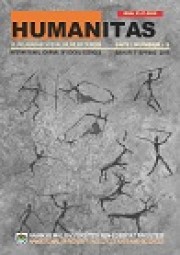REFORMLAR ÇAĞINDA TÜRKİYE’DE MOLIÈRE’İN YENİDEN YAZIMI (19. YÜZYILIN İKİNCİ YARISI)
REWRITING MOLIÈRE IN TURKEY IN THE AGE OF REFORMS (THE SECOND HALF OF THE 19TH CENTURY)
Author(s): Çiğdem KURT WILLIAMS, Ayşe Banu KaradağSubject(s): Literary Texts
Published by: Namık Kemal Üniversitesi Fen-Edebiyat Fakültesi
Keywords: Turkish Translation History; Theater Translation; Molière; Tanzimat Era.
Summary/Abstract: Molière is one of the Western playwrights who has been most translated into Turkish. The adaptation of Molière into Turkish began at the outset of the 19th century and picked up speed during the 1870s in which a new phase began. It was in these years that the rich characters created by Molière were introduced to the theater-going public of the Ottoman capital, Istanbul, in the mode of Ottoman clothing, with Turkish names and speaking the Istanbul dialect of Turkish. Audiences were spellbound. This article focuses on Molière’s Turkish translations and Turkish and French performances in the second half of the 19th century and aims to show how the classical French playwright was received in the Ottoman Empire and how he fed the Ottoman-Turkish theater. Because Ahmet Vefik Paşa’s Molière translations have been widely studied, we will briefly discuss these works before turning our focus to the translations of the contemporaries of the pasha, namely A. F., Âli Bey, Teodor Kasap and Mehmed Hilmi. We will study the decisions made by these four translators before and during the translation process as well as the translation politics behind how Molière was translated into Turkish. The translations discussed in this article are the following: Sahte Hekim/Le Médecin volant (A. F., 1872-1873), Ayyar Hamza/Les Fourberies de Scapin (Âli Bey, 1871), Pinti Hamid/L’Avare (Teodor Kasap, 1873), İşkilli Memo/Sganarelle ou le cocu imaginaire (Teodor Kasap, 1874) ve Yirmi Çocuklu Bir Adam yahud Fettan Zaman İnsana Neler Yapmaz/Monsieur de Pourceaugnac (Mehmed Hilmi, 1879-1880).
Journal: Humanitas - Uluslararası Sosyal Bilimler Dergisi
- Issue Year: 3/2015
- Issue No: 05
- Page Range: 127-136
- Page Count: 9

